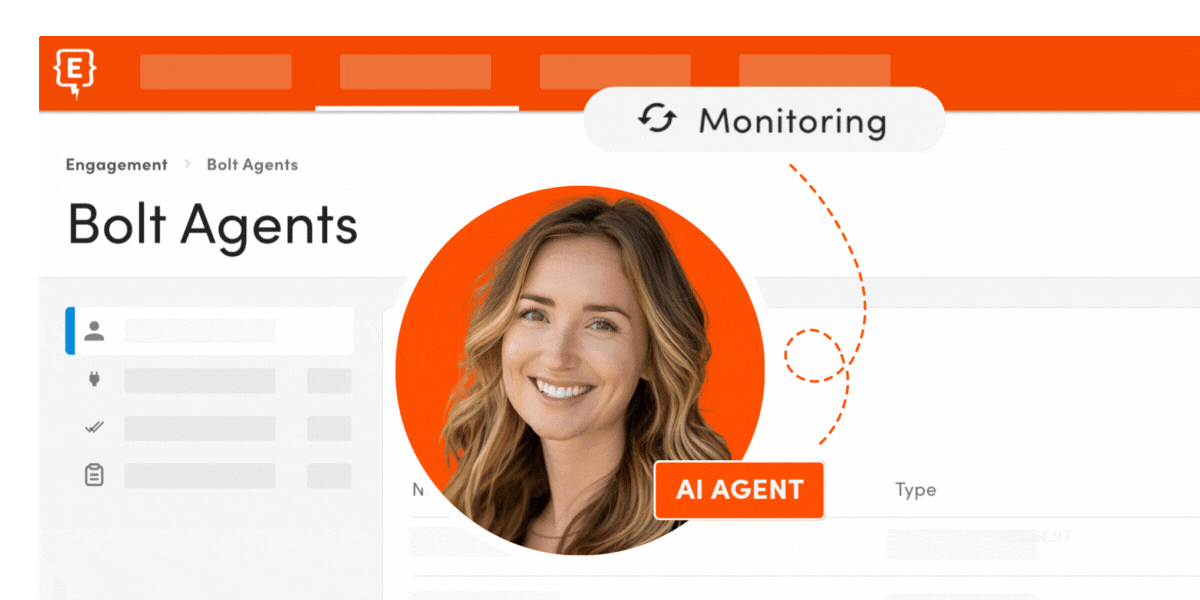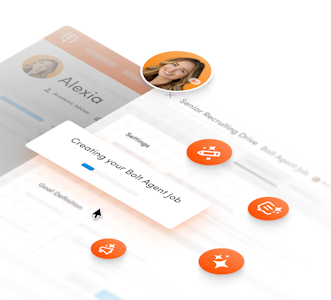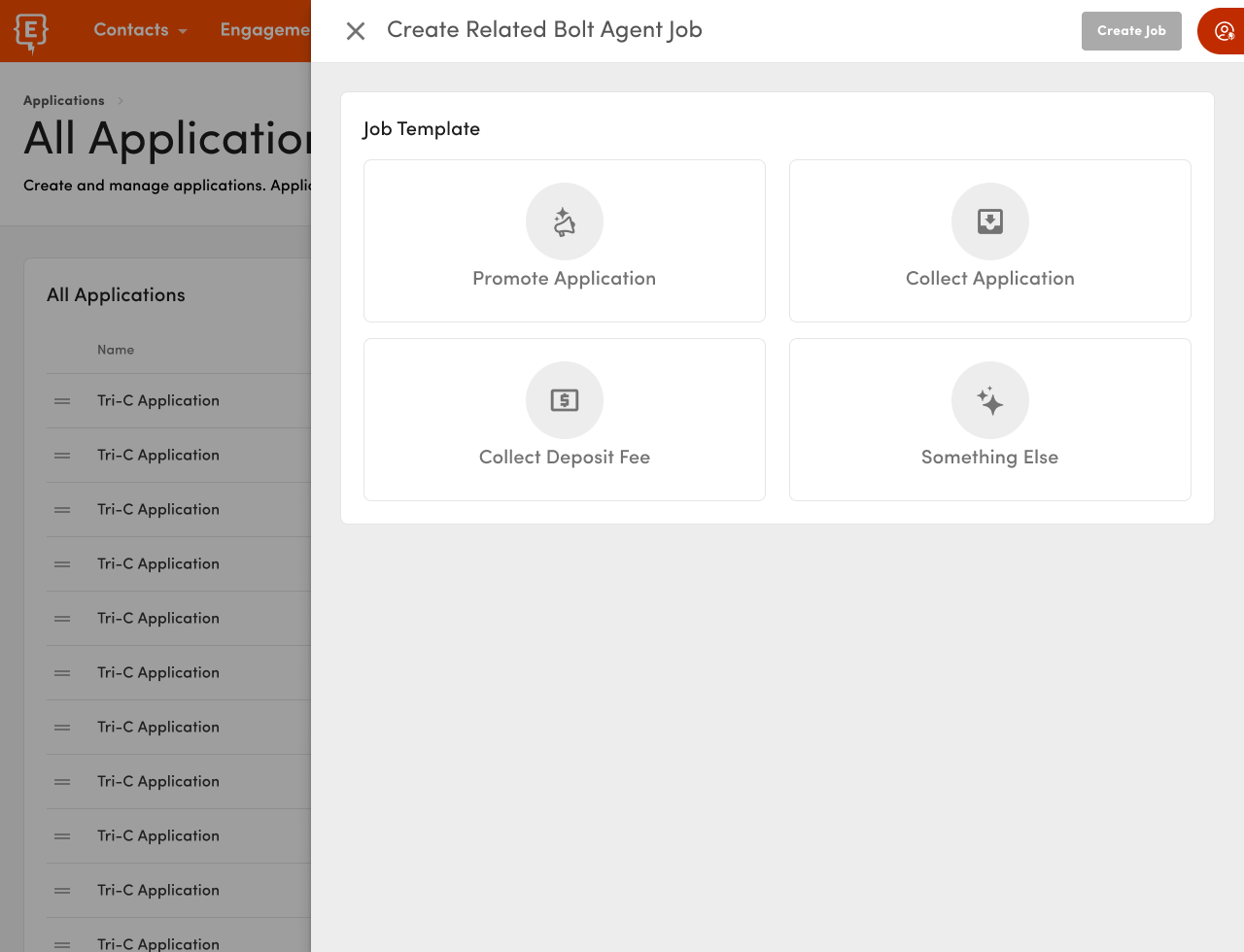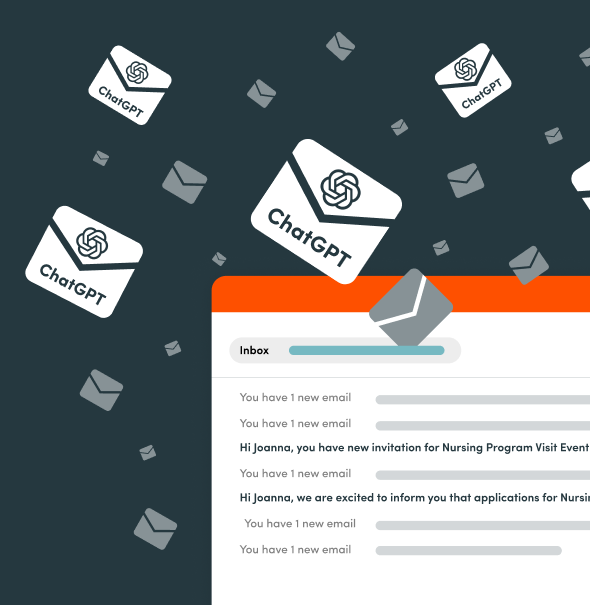What Exactly is ChatGPT and Why Should Higher Ed Marketers and Enrollment Managers Care About It?
by Ardis Kadiu · Updated Mar 30, 2023
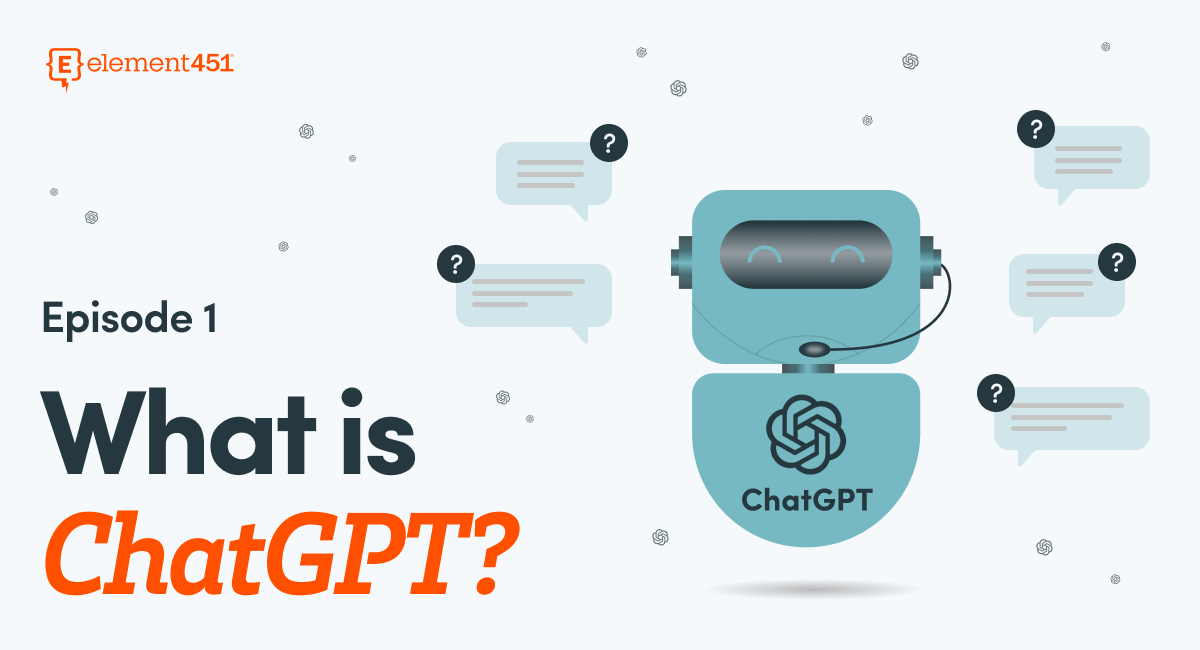
The Higher Ed Marketer’s Guide to ChatGPT and Generative AI is a special podcast series brought to you by Enrollify and Element451 and hosted by Ardis Kadiu, Founder and CEO of Element451 and Zach Busekrus from Enrollify.
Over the next four weeks, we’re taking a deep dive into the past, present, and future of Artificial Intelligence's role in higher education marketing and student recruitment.
In Episode 1, you’ll get a crash course on what ChatGPT is and why higher ed marketers and enrollment managers should care about this revolutionary tool. You’ll learn:
- What technology, systems, and behavior that exist in the market today enable a tool like ChatGPT to provide meaningful value
- What is generative AI…is it really just magic and robots? Where is ChatGPT getting its smarts from?
- Why higher ed marketers and enrollment managers care about ChatGPT and the greater ecosystem of AI tools entering mainstream culture
- What the smartest, most progressive institutions do today to begin setting up the necessary frameworks for their teams to leverage the power of AI to be more creative, efficient, and effective in their work
Want to dive right in? Listen to:
- The evolution of Open AI (5:18)
- The difference between ChatGPT and search (8:50)
- How ChatGPT can save you time (17:50)
- Using ChatGPT for personalization, efficiency, and access (27:10)
- Why context matters in one-to-one communication (30:30)
About the Series
The Higher Ed Marketer’s Guide to ChatGPT and Generative AI is podcast series brought to you by Enrollify and Element451.
In Episode 1, you’ll get a crash course on ChatGPT and why higher ed marketers and enrollment managers should care about this revolutionary tool…
In Episode 2, you’ll join Ardis and Zach for a live brainstorm on how marketers and admissions professionals can use ChatGPT to generate innovative campaign ideas and increase operational efficiency…
In Episode 3, Ardis and I are joined by JC Bonilla, Element board member, and Chief Data Officer at Vayner Media, for a conversation on the history of generative AI and how the broader advertising space is using AI to promote their products and services.
And, finally, in Episode 4, Zach and Ardis are joined by Element’s Chief Technology Officer, Petar Djordjevic for a conversation on how Element is using AI to build one of the industry’s most powerful and user-friendly CRMs on the market.
Full Transcript of Episode 1
Zach Busekrus
Welcome to the higher ed marketers guide to ChatGPT and generative AI, a special podcast series brought to you by Enrollify and Element451 and hosted by Ardis Kadiu, founder and CEO of Element451. And yours truly Zach Busekrus from Enrollify. Over the next four weeks, we're taking a deep dive into the past the present, and the future of the role that artificial intelligence plays in higher education, marketing, and student recruitment. In episode one, you'll get a crash course on what ChatGPT is and why higher ed marketers and enrollment managers should care about this revolutionary tool. In episode two, you'll join Ardis and I for a live brainstorm on how marketers and admissions professionals can use ChatGPT to generate innovative campaign ideas and to increase operational efficiency. In episode three, Ardis and I are joined by JC Bonilla Element Board Member and the Chief Data Officer at Vayner Media for a conversation on the history of generative AI and how the broader advertising space is using AI to promote their products and services. And finally, in episode four Ardis and I are joined by elements Chief Technology Officer Petar Djordjevic, for a conversation on how Element is using AI to build one of the industry's most powerful and user-friendly CRMs on the market. Alright, without further adieu, welcome to the higher ed marketers guide to ChatGPT and generative AI. Alright Ardis, we are live my friend, how you doing today?
Ardis Kadiu
Doing great.
Zach Busekrus
Awesome. Well, I am super excited for this conversation because it's just one it's just like timely. And it's like very, it's like a hot topic that pretty much everyone in every industry is talking about. And that is how AI specifically ChatGPT has sort of like taken over the internet by storm and everyone from like my grandmother to like my, you know, two-year-old cousin knows what ChatGPT is or that they at least think that they know what it is. So it's a very trendy topic. But we're here to talk today about its applications in higher ed. And we're going to take the next four episodes in this cool little mini-series that we're working on with you all at Element to really sort of unpack what these tools actually mean. How do schools use them? How might marketing and admissions teams use them? And you know, are is everyone really gonna lose their jobs? Or are these tools really just built to help us be able to do what we do in higher ed but do so better and more efficiently? So that's sort of the broad strokes of what will be what we'll be chatting about. But, um, anything else you want to add before we just kind of get into the meat here?
Ardis Kadiu
Yeah, I mean, AI and kind of the fear of AI has been, when it gets introduced in the general population, it becomes a little bit more. There's a lot of unknowns. And people just get this superficial, understanding of it. So hopefully, during this series, we can go a little bit deeper and give you a little bit more of an understanding of the trends that are happening, the science that's happening behind the scenes, and also kind of the players and the ecosystem overall. Because it's not just ChatGPT. But there's a larger ecosystem of AI and kind of this trend that is happening that is going to impact not just your job, but also you're going to impact the day-to-day life of everybody from you know, Google Search to, from search to Alexa to Siri to all of these different technologies that are driving your life today.
Zach Busekrus
Yeah, yeah. It almost feels to me Ardis, in the same way, that when mobile first became a thing, right? Or when like, when, obviously when the iPhone first came out, to begin with, there were all these just like, you know, lots of fear, lots of uncertainty, lots of like, unknown Oh, well, you have to develop like everyone needs an app, right? Remember when like everyone thought like every organization was like, we have to build our own app, right? Because people are gonna be on their phones. And then it was like, hey, actually, you know, maybe that wasn't the solution. And a lot of people spent a lot of time developing apps that went nowhere, right? And so it feels like we're sort of in this moment to where, you know, AI has been talked about, as you mentioned for so long, but we're finally at a point where the practical applications, your average can Suma can see and understand they can, when they write a query right on ChatGPT or write some sort of prompt, the response that they get is like, it's quite, eerily accurate, right to what you might be looking for. And I think that that this is like the best example that we've seen, at least the general public has seen to date, which is, you know, of course, bringing up all these conversations, again of what are the what is the right way to apply these, these tools? What exactly, you know, where is this knowledge base actually located? How is how does ChatGPT actually function? So I'm excited to you know, pick your brain as somebody who's, you know, brilliant in this space, you lead an ed-tech company, and one of the most exciting kinds of fastest-growing higher ed CRM companies. So you guys are like, You guys probably talk about this stuff all the time. So I'd love to just, you know, dive into helping people. You know, for those who are tuning in that don't really understand what ChatGPT is where they see about it, they see it on social, but they haven't actually used the tool at all. Could you just give us sort of like a brief overview of what ChatGPT is, specifically? And then and then we'll, we'll go from there.
Ardis Kadiu
Yeah, absolutely. So if you think at a very, very low level, or a very kind of simplistic level ChatGPT is a very advanced Alexa, or Siri. So you ask it a whole bunch of questions. And it gives you really accurate answers. Now, if you go down into it a little bit more, it is actually a chatbot or an AI tool that is trained on a large data set of text and is able to when you ask good questions is able to give you answers based on that large data set of texts. more accurately than anything we've seen before.
Zach Busekrus
Very succinct. I love the more advanced Alexa or Siri that immediately like makes me get it and talk to us about the platform that's behind ChatGPT. Because ChatGBT in and of itself is not a platform. What can you tell us about like open AI and just, you know, the folks that are building sort of like the technological infrastructure that's necessary for tools like ChatGBT to exist.
Ardis Kadiu
ChatGPT is built on a lot of advances that have happened over the past four or five years in AI, there's been some really key advances that have kind of propelled the industry forward. But at the core of it, one of the players has been open AI, open AI is a company that started you know, earlier, you know, five, six years ago, but they started as a non for profits to basically democratize AI and democratize this models and make them open source, obviously, because you need a lot of resources, they have found other means of bringing in funding, but at the core, this are very smart people coming from different companies from Google, from, from Facebook, from, from Tesla, and so on, and so forth, putting all these really smart people together to build AI that is going to kind of be transformative for the future. So as part of that, open AI has kind of done a few advances in that a few advances. But one of the things that have done the best is to put out models to the general public, right, because that is their mission. And as part of that what's underneath ChatGPT is that they have exposed this what we call language models, right? So ChatGPT is technically a language model. And they have exposed those models to the general public. And they have exposed those models as API's to the general public as well. So you have a, you know, a tremendous amount of technology and kind of this large models that are being built by these very smart people. But yet at the same time, they're making them accessible to the outside world and not locking them up. Similar to perhaps Google is doing the same kind of training and technology advancements, however, they are adopting them to their products, rather than opening it up to the outside world.
Zach Busekrus
Yeah, yeah. And just to back up even a little bit more here. I'm talking about sort of like like language, right, and like the data set that's behind ChatGBT. And so when I interface with the tool net for listeners, again, who have not experimented with the tool, we'll have a link in the show notes. So you can go check it out. But like, basically, it's you could do this on your phone or your browser, your web browser, you open it up and there's basically like a chat window, right? And you can you do write whatever you want, almost like you would search on Google. But instead, you might say something like, Hey, write me a blog post on why Element451 is the best higher-ed CRM or something like that, right? And then what people actually do is that all right, you a blog post write or write you an outline for a blog post, whatever you say. And it's again, it's very, very, eerily we keep using that word, but it's true, eerily accurate or on point. Right. So, but Ardis like is this just is ChatGBT just doing basically a scrape of like, top-ranking content on Google? And that's what sort of like the populating its response or like, when you talk about, like, the data set that it's tapping into? Where's ChatGPT getting its like answers from?
Ardis Kadiu
Yeah, so there's a difference between ChatGPT and search, right search is just going in and pulling information based on a question that you asked, and it's pretty one-to-one. And it's ranking some of that search based on the ranking algorithms, like how influential that link is. And that's what SEO is all about. ChatGPT is a little bit different, right? It's actually called New what we call it a language model MLMs. So we're going to hear that a lot like the large language model, which means has been trained to understand them to produce human language. So the way ChatGPT works is by this kind of type of AI, which is called Deep Learning, which is a way of teaching computers how to learn from data, right. And when we talk about ChatGPT, the large amount of text that was fed into it, and the algorithms to kind of train between the relationships between the words and phrases of those of that large text that's been fed into it. And this training process takes a really, really long time. Because if you think about it, it's it's very similar to how a human learns, right? It's introduced to new information, it understands kind of the outcomes of that new information, what happens, and the neural networks in here are very similar, right? It's fed those pieces of text, it understands the relationship between words and understand the relationship between phrases. It understands the relationship between different languages. So if you feed it the same, you know, different languages. And then when you ask it a question, it uses what it's learned during that training process to analyze that question, and kind of generate responses. So it looks for patterns in the words that you give it. And it understands the context of the question, and it gives you the most helpful, possible answer. So there's all these things that are happening behind the scenes, but it is not just pulling information there is everything is transformed, basically to numbers. Yeah. And then it kind of figures out the relationship between the words and the phrase and the context. And it outputs what it thinks is the best outcome for that particular input that you gave it.
Zach Busekrus
Hey, guys, Zach, here, I want to quickly interrupt this conversation to invite you to join me at Element451's Engage Summit on June 27, and 28th, in Raleigh, North Carolina. When it comes to the student experience, we know that you want to be a trusted guide from recruiting all the way to graduation. Well, the Engage Summit brings the best minds in higher ed together to give you the strategies and tools that you need to create a cohesive student experience from start to finish, explore the latest technologies, increase your skill set and gain insight into today's students to deliver the most powerful and personalized digital engagement experience every step of the way. This is not your standard ed tech user conference. This is a dynamic, inspirational, and empowering event for all hired marketers and admissions professionals. I'll be presenting at this year's event along with some of your favorite higher ed, LinkedIn and Twitter followers. You can learn more about this event and register for it at Engage.Element451.com. Oh, and you can get $50 off your registration when you use the discount code, Enrollify50, that's Enrollify50 at checkout to go ahead, check it out, RSVP at Engage.element451.com. Looking forward to seeing you all there.
Yeah, that was so well said it's almost like when you conduct a Google search, right, you're gonna get like the top 10 ranking for whatever it is that you searched. And that's Google's way of saying like, hey, you know, Ardis, we think that you're looking for, you know, something like this, here are the, you know, here's our 10 best guesses if you will of like what you're trying to get, whereas ChatGPT is like it's giving you an answer. And there are like no links, right? And it's so it's doing it's almost like doing like, like this synthesis to have like, Okay, other people that have asked this question, what have they found helpful? And then and then also sort of like the what is super, super interesting here is its ability to understand the context, right? And like, the word, the words that I choose, right, could generate a wildly different response, even if like most of the sentences the same, like it's been fun testing out like how you get different responses from ChatGPT and it's it is amazing, the level of like, understanding it has around context. And that's something that I can do like search, you know, while it's gardening, it's remarkable. It's still, there's still times when like, you're like, oh shit, like nevermind, like I and you like you search again, like you use a different phrase because like Google didn't quite understand what it was that you were getting at because the context layer just isn't as strong. So this is like, it's it is quite game-changing. So I want to understand like, as a technologist, like, how do you think about all of this? Like, are you like, is it exciting? Is it scary? Is it like, Are you do you immediately think about all these like applications for how, you know, you know, you could use AI? And really, I think like, the broader you can correct me if I'm wrong Ardis, but like, the broader term here is like generative AI is sort of like the umbrella term for kind of what a tool like ChatGPT is. But what do you think about all this? And like, how, how exciting and or scary is it to you?
Ardis Kadiu
Well, look, I mean, generative AI, it's, I want to go back to that the refers to this category of AI algorithms is basically generates output based on data that's been trained on, right. So unlike a traditional AI system that's designed to recognize these patterns. To make predictions, generative AI actually creates new content. And it can be in the form of text, audio, images, in the form of other things as well, there's, there's a lot of that that's happening right now in terms of producing the kind of outputs that are in the code as well, right? So so all of these different things, it understands that so to me, as someone who is kind of looking at this every single day, I just can't wait to, to basically have this technology be alongside us. If you if you have that picture of let's say Tony Stark, or, you know, the Black Panther, like where they have the AI. So you have this idea of a co-pilot, right, so the idea of a co-pilot is essentially where we're trying to get to, we're trying to get to a place where AI and kind of this models and this technology is there to help us along our daily lives, but also be a co-pilot in different tasks in co-pilot in generating your new marketing ideas and generating you new code. So it's the Jarvis of kind of what we're over every day, right? Obviously, we've talked about Alexa and Siri. But if you think about it, those are copilots. Those are assistants that are helping us achieve tasks better, but much smarter.
Zach Busekrus
Yeah, yeah, I'm glad that you brought up sort of the image generation that this technology allows and audio generation and the ability to kind of like write code, I think about like, you know, Dali, to sort of like the more popular tool out there that people have been using for image generation was, what's really cool about that is that like, you don't have to worry about copyright issues anymore, right? Or like, or like finding like an iStockphoto, like, when you use some of these tools, and you dictate, hey, I want you to, you know, basically create something like this. And then you can tweak it along the way, you can customize it all of a sudden, like you've created quote, unquote, like an image that is unique to you that you can use on your blog posts, like your articles, you don't need an icebox subscription anymore. Like, you don't have to worry about like infringing on copyright, because, again, it's a totally custom image that you created. And, you know, the best part, you also don't need to be a designer or photographer right to create an image that will work for your email masthead, or whatever it is, right? So like, exactly,
Ardis Kadiu
it's amazing where, so one of the couple of newer tools that you were looking at is basically figuring out, it's like, Hey, I have, I want to create a website, it's going to be around this particular topic, I want it to feel this way, right, I want it to feel airy and open. And I want to have, you know, a track, I want to I want my users to be a certain type of user. So the AI can interpret all of that stuff, and then can give you designs around it. And, you know, some of these tools are taking those designs and not transforming that into actual usable code. So you can have a fully built website just by describing what you want out of it. So that's really exciting. It's like cutting down the time that it takes a creative person from, you know, weeks and months to almost, you know, hours.
Zach Busekrus
Which is yeah, just unbelievably like remarkable. And, you know, these tools are by no means like, perfect, and yet they're not. They're very early. Yeah, we're very early but it's good enough where you, you know, like I was working talking with a friend the other day, who's a fellow podcaster in the space. And they had, they used some I don't even remember which tool it was, but they use some AI tool to basically automatically generate a podcast interview between him and another person who has is also a podcaster. So there's a lot of content for like, the tool to pull from right that exists out there. But it was like, and it was only like, eight minutes long or something. But it was, it was scary, it felt like a brand new interview with this guy will write and it was just so jarring to me. But, but, you know, I think I think what's also important to keep in mind here is people can start there, I've seen some of this going around on social, especially kind of in the higher ed community, people sort of like being critical of the of these tools and or just being you know, I like my copywriter just the way that they are like, I don't need, you know, ChatGPT. And, and I think one analogy that I've been thinking through, and this is not like, well, perfectly well formed. But if you were like a really, really great Baker, let's say right before, before the internet, you're a really, really, really great baker, you're, you're maybe the best in the world, but the only people that are ever going to really under like know that are the people in your local community that can get to your bakery, right, and like common and have a doughnut Have a muffin, right? But then what the internet did is the internet-enabled, like some of the best right to basically get the word get the message out there that Oh, wow, like, you know, the best bakery in all of New York, when people are searching for that online. You know, on Google, if you really are the best, you're going to rank number one or number two, and number three, and like that insight enables you, it opens you up to a encrypt much, much larger and more diverse customer base, right, which then obviously has really cool outcomes and opportunities for the bakers. And in essence, your craft, if you really are really, really, really good at what you do, these tools, right aren't just going to help you be better at what you do, they're going to give you more exposure, they're going to cut down on like the time it takes to do unnecessary like tasks. If you're, you know, experiencing writer's block, being able to go to ChatGPT and say, Hey, give me like 50 ideas for you know, how to write a better student recruitment email or something like that, right? At the very least, like you're offloading, like the mental load it takes if you've hit some sort of friction, and you're having a tool, do it for you. Again, you might not use a single one of ChatGPT, 50, you know, ideas, but you can take that and hopefully riff off of one or two of them. And maybe you saved yourself, like hours and hours of time.
Ardis Kadiu
Exactly, exactly. So, I mean, one of the things, if you look at the advancement in AI over the past 10 or 15 years, 10 years, or 15 years ago, people were very adamant that AI is going to replace manual labor or the work the blue-collar jobs, right, and then it's going to replace kind of the low-level white collar jobs, and then maybe it's going to replace, or it's going to be kind of advancing into the kind of more advanced, like coding and some of the sciences and things like that. And then the last was going to be creative because humans are very good at being creative, right? So what's ended up happening is that this technology is actually kind of flipped, right? So interesting, the creative jobs or the creative output is now working, you know, it's working backward. So it's doing the creative, really good at that. But the physical world is very hard. So, you know, we're still going to be, you know, requiring, you know, empathy, and we're still going to require people to kind of connect, interact with other people. So those things are not going to go away. But to your point, you know, the ability for the tool to amplify what you're doing, and to get you a head start and this idea of it being an assistant, very similar to you know, I think Steve Jobs had this visual weight when they brought when he brought the Mac and when he thought about computers. He said, computers are a tool, right? They're a piece of technology, very similar to a bicycle, right? A bicycle can make a person a human, the fastest animal on land. So when you think about that a computer is like a bicycle in your mind. It can make you the fastest or the best that you can think about so. So when you think about how AI is like well take that to another step. And it's we've been using technology all along and humans have been doing that all along. So we should be thinking about it as just a piece of technology that is going to make us better at what we do. Right, there's not going to be a shortage of jobs, there's not going to be, it's just that our, we need to adapt to coexist and to kind of use that technology to kind of propel us faster and do things better. We become rather than information kind of gatekeepers, and people who can access information, if you're good at searching or go to Google, or, or good at, you know, learning from books. Now we become curators of information, right? So you kind of transformed from access to curation. And that curation is really important. Because to kind of use another example, you go to a doctor, and you can come in with a, you can Google and you can go to WebMD. And you can come in and say, Doc, here's here's all the research that I found, like I have this kind of disease. And this is what I found around it. And the doctor can come in and rather than the doctor say, no, no, that's garbage, you should not listen to any of that stuff. This is they don't, they don't know what the hell they're talking about. So rather than get defensive, as professionals, we should not take that and be the curation and say, well, that's great. But have you looked at this other research, and this is, this is how this research not connected to this one. And you perhaps should look at this other one. So opening that up and giving being the subject matter experts, and the curators and moving into a curation mode becomes so much more valuable to somebody, then the word context come to mind, right context, machines don't have a lot of context. And we need to provide a lot of that so so that's that's something that that's going to be there for a long time.
Zach Busekrus
Hey, y'all, Zach here from Enrollify. Our podcast network is growing by the month and we've got a plethora of marketing, admissions, and higher ed technology shows that are jam-packed with stories, ideas and frameworks that are all designed to empower you to become a better higher ed professional. Our shows feature a selection of the industry's best as your hosts learn from Mickey Danes, Jeremy Tears, Jamie Hunt, Jamie Gleason, and many, many more. You can learn more about the role by Podcast Network at podcasts dot unroll. fi.org. Our show is helping higher ed marketers and admissions professionals find their next big idea, find yours at podcast.enrollify.org. What I also think about too, is like, you know, today, if you think about if you're a higher ed marketer, and you're let's say you're a strategist, maybe you're a director of marketing, maybe you're a CMO or, or what have you, you're probably not like, hopefully, you're not, you know, in charge of designing and in charge of all copywriting. And in charge of all developing right, you hopefully oversee a team of people of experts that do those things really well. But one of the things I think a lot about that is kind of like an immediate solution for at least the early stages of where these tools are at is the ability to actually give as you were just saying, Ardis, your team way more context to make their designs better. So I think about like right now, like if you if you're a CMO, you're a director of marketing, you're working with your design team, you might say, like, hey, so I have this idea. And I want it to look like this. And I want it to feel like this. And I don't want it to be like last year's campaign, but I want it to be, we have to include these new things, this new message because the President really wants us and you can kind of describe what you're going for, then your creative team has to go. And they have to come up with concepts that they then present back to you. Sometimes those concepts might really miss the mark, like even today, it's like, oh, gosh, the context wasn't quite communicated. Whereas if you're that director of CML, you can use some of these tools to tell the tool exactly, you know what it is that you're trying to do, revise it as necessary. And then essentially give like a much more polished, creative brief, a much more specific creative brief to your creative team, so that they end up giving you what you want. It's way better than that what the AI tool came up with. But it's way more accurate to what you had initially envisioned, because you were able to leverage your co pilot to help you get there.
Ardis Kadiu
Exactly, exactly. And he can be personalized to the individual person that you're giving that specific, brief to, because somebody who is creating, you know, content for SEO is going to be very different from someone who is creating a video from someone who is creating ads. So they need that creative context. And not everybody is very skilled at understanding all the nuances, right? There's very few people who can understand the nuances of all the so the experts who are doing the work, need as much context as possible. So having the ability to do exactly what you said gives them more details and more context there. It's super useful.
Zach Busekrus
Yeah, yeah. On that note, Ardis, I'm curious, like, you, you all work with lots of folks in higher ed marketing and missions, and I'm sure you've even heard some of this from your clients already. But about Like, oh gosh, what do you guys think about these tools are like, you know, how are these tools going to, you know, if at all work their way into elements technology stack? And we can talk more about that in a later episode? That's part of this series. But I do, I would just love your thoughts on like, if you, if CMO or VP of Enrollment Management were to come to you and say, Hey, Ardis, like, what are your thoughts on how my team should be using some of these tools? Maybe ChatGPT? Specifically, if at all, like what would you say? Like, what advice would you give folks?
Ardis Kadiu
Yeah, there's some very, very clear areas that the tools can be used for. Number one is personalization. Number two is around efficiency, three, around access. So if you think about those three things, it becomes really important too, in the personalization, ChatGPT, and kind of this guarantee of AI tools can create highly personalized and targeted content for students. Right? That is one of the biggest things that we see as a tool. One of the gaps that we see is content, how, how do you deliver content, we build the technology right to deliver personalized content, but somebody still has to build those words to put in those emails. Even though we've kind of, you know, kind of moved them along and created a whole bunch of pre-built stuff, it's still personalizing that one-to-one communication is really important. So that is number one, you can use it for personalization to drive kind of customized messages, customized ads, chatbots and communicate with a prospective student kind of in a more engaging personal way. So that is the number one around personalization.
Zach Busekrus
Yeah, yeah. On that note, too. Like I'm even just thinking, as you're talking about this, where we're gonna go here is like, you already see this with Google. And like, if you use Gmail, right, or Google Docs, or Google Suite, it's not like Google's suggesting like words that should come next, right? You press like tab or whatever, and they send we're gonna see that with all these email tools. And what's probably going to happen is these systems are going to learn and then be like, Oh, wow, like anytime Zach sends Ardis an email, he uses three emojis and a bunch of exclamation points. So Ardis' response to Zach should match Zach's tone. If Ardis just respond to Zach with like, a period and no emotion, Zach might be turned off by that communication. Whereas if Ardis is, you know, communicating with Mallory and Mallory's like short to the point, like no emojis, like, you know, no exclamation points, well, then your response, your response should mirror her tone and her style, if we're really serious about personalization, that's what personalization looks like. It looks like changing your tone and your, your style to the context of like the person on the other end.
Ardis Kadiu
Yeah, exactly. And taking that a step further. And this is stuff that we're working on, because we are conversations, you know, component is one on one communication. So now the context of the whole conversation can be summarized and can be brought in to that generated content. So not only can the tone be derived from that, but also sentiment analysis to see is this student calling because they have a problem? Or are they happy? And they're, they're excited to kind of call you. So when you provide that answer, you have to be cognizant about how do you compile that response? You're not going to put emojis in there if the student is very angry, right? So because they got a bill that they weren't expecting, but if they are, you know, excited about starting classes, and they're just asking a question, so those emojis are very appropriate in there. So not only does it take into account prior conversations, but also the context of what's what's in that email at that point.
Zach Busekrus
So I'm curious if you've, if you've got any thoughts, too on just if you're, if you're talking to a leader in higher ed, who wants because, because the other thing that I see happening, too, and I don't know, if you're seeing this Ardis, is like, some people are, like so resistant to it, that they don't even want to like experiment with the tools because I don't know, people just they read a headline and they get scared, right? So and yet, you know, higher ed is is an industry that is under-resourced, right? I haven't met anyone in higher ed, who I've ever talked to who's felt like their job was easy or felt like they weren't wearing like a dozen hats, like a lot of people in higher ed are doing a lot of different things. Right. And it's, it's it, there's been a lot of burnout over the last few years, as we've seen, right? So if you were a leader right now, in this space, and you wanted to encourage your team to use these tools just to like, get familiar with them in the off chance that it might actually help lighten their load and in some way, shape or form right or reduce like the mental load that they need to complete their work. Like, what are some good ways you think people can get started using a tool like ChatGPT within the context of their, of their professional job.
Ardis Kadiu
Well, the first thing is content. So just emailing, right? If you're writing a piece of content, you're sending communications to your students, the first thing that you can do is take an existing email and have ChatGPT rewrite it for you based on a particular outcome. So you can say, take this invite that I sent out to this population, and now rewrite it in a more friendly tone by producing only two paragraphs rather than a really long one, and the friendly tone, and you can inject a little bit of something, you know, personal that's happening, perhaps that particular week or that when the time that you're sending that email, so, so transforming content that you already have into much friendlier, or different voices that's coming, something is coming more from the President or something that's coming from a counselor. It's the same message, it's the same content, but now tweaking it and transforming the voice. It's one of those, like, everybody should be able to do that. Right. Yeah, that's, that's number one.
Zach Busekrus
That I love that that's a really good idea. And taking that even just a step further. It's jarring to me still today, how many higher ed marketers in enrollment managers I talked to that don't take the time to like, do effective, like A/B testing, because they feel like they don't have the time, right. Here's another example. Like you wanted to A/B test tone or style. Great. You just write one email, right? And then have GBT write the second email, that's, you know, that is the opposite, right? And use you leverage this tool as a way to do better A/B testing.
Ardis Kadiu
Yes, exactly. To that point, so A/B testing, you can talk about A/B testing in two ways, right? It's, How do you get somebody to open the email, and then you're focusing on the subject line and your preview text there. But no, but the subject lines are perhaps one of the most the pieces that are taken for granted by any personal like any user, like they are focusing so much on the content, but they're not focusing on the subject lines of the preview text. Yeah, that's what people focus on. That's what when you scroll down your feed, that's what you're looking at. So having ChatGPT write you a subject line based on the content that you wrote is actually another way that you can kind of cut down your work, it's going to write something that's going to be very effective, very, very good. And you can tell it, what you want the outcome to be is you can tell it, hey, take this email, write a subject line that is a short, concise, to the point that we want them to take action right away. So you will put all those pieces together include five emojis, like it will do that for you.
Zach Busekrus
Yeah, it is. It's remarkable. And again, like, sometimes you get these responses, you're like, Oh, well, that was like, Okay, I get what I get why they, the tool did this, but like, that's not really what I was going for, like, like, you know, this is, this is something to work with. But again, if it's something to work with, the goal is like, rather than you having to, like, go into your office, spend, you know, two hours trying to come up with, like a different approach and a cooler way, or like write that first, you know, email invitation for your open house? Yeah, if you just start with a tool, just start with the tool. And then either, you know, trash it, right or, or, you know, create a few additional prompts, see what else that you see what else you get? And who knows, maybe you've maybe that two hours is now 20 minutes, and you've got a pretty solid working draft. And I think that that's, that's what makes these tools just so powerful. And in theory, right, like, because of the knowledge base that it's pulling from, it also should the answers that ChatGPT offers right should be rooted in some amount of data, meaning like, if they're using a particular tone or style in communication, it's probably because like, that tone, that style, in other contexts has also seemed to work for people, right, like meaning if people leave ChatGPT after they've gotten an answer to their initial prompt, in theory, they're satisfied, right? Or happy with what they get. It's one of the big things that you know, Google always looks at in terms of how they rank content is, hey, if you don't come back to Google and continue searching for like, the same thing, you were probably satisfied with the website that you ended up on and the offers that, you know, the answers that were delivered on that website, chat ups, doing the same thing, right, like, if you leave, right, it assumes that you got what you came for. And so I think that like these, these examples that you gave are really great Ardis. The other thing too, I even think a lot about is ad copy, right? And like digital ad copy, which is one of the things that I feel like schools struggle with so so so much is like very Loring like very, very already there, yeah, very, very generic, they use the same sort of like campus shot with people like walking through, like, you know, the quad. And like, being able to use a tool like this to just generate more ideas. Is a huge time saver. And even, like, I was even thinking about use cases where if a school is working with a with an agency or something like this, having an agency.
Ardis Kadiu
There's a process and there is, there's a way that agencies work. And, you know, it's no magic, right? It's like you're, you're trying to get an action or a reaction or an outcome. And there's only certain ways that you can position messaging that you can kind of create book creative together. So all those different pieces, like you can work backwards, and you can say, I want this outcome. Now, we'll walk me backwards on how to give me ideas on how to do that, give me ideas on so on, and so forth. So it's, it's, it can become a very powerful idea generation tool as well.
Zach Busekrus
Yeah, I'm even thinking to like, how cool would be for a client partner to work with their agency and almost use the tool together of like, because I think what's also hard is sometimes when you're working with a higher ed professional, they might not always be able to fully articulate like, like, they might not be a brand person, or they might not be a marketer, right, which is why they've hired an agency, but like, you know, they do know, they know their brand, and they know their offerings, and they know their students, and they know the culture of the school. And so sitting down with your agency partner, to work through a tool like this together could actually help you better find exactly it is what you're hoping for and what you're looking for, and also help the agency get a better sense of that. So that, you know, they could take this, these responses from Chad GPD, and then turn it into something like truly excellent, it would be really cool to see people test this out. And, yeah, it's like the next generation of brainstorming.
Ardis Kadiu
Exactly. So you mentioned this, this word called prompts, right. And for those of you who don't know what the prompt is, it's essentially what the input is to, to these models or to this to the AI. And because of that prompt can be it can provide context, as well, as kind of action words, and so on and so forth. It's very important in how you build that prompt. So the prompt can contain the context, it can contain what you want to do next, it can contain the style, it can contain a lot of different things. So rather than, you know, as we discussed this things internally with my team, we're talking about, and it's like, well, prompt engineering is actually one of the areas that we have to be really good at. And that's kind of when we tried to solve a problem now is like, Well, how do you templatized that? Well, let's just create a prompt that has all those different components, and then just take out the pieces and inject the pieces that are specific to this particular use case or to this particular brand, or to this particular school or the outcome. So the prompt engineering is now your, your intellectual property, so to speak, right? That is the that's the secret sauce, it there's no, the knowledge is not necessarily the secret sauce, it's how do you ask the machines to do what you want, which is the prompt engineering and that's a, that's a big, big area that a lot of folks are kind of putting a lot of time on right now. Because you can ask it something very simple. And it's gonna give you a simplistic answer, right? You ask it something very, very nuanced and in how you ask it and how you build that prompt is going to give you something that's much more fine tuned to, to an output that you want.
Zach Busekrus
Which I bet means that we're going to start seeing like, if it's not a job in and of itself, if we're like, if prompt engineer isn't a job in and of itself, it'll be a descriptor of like, hey, you know, part of being a content marketer, part of being, you know, admissions counselor, whatever it is today, you need to be a good prompt engineer, like, like, that's gonna, we're gonna see that in job descriptions.
Ardis Kadiu
Well, actually, it was a job and you can go on some of the job boards and you can look for prompt engineering. I there was I think one of the ones that was they came up was in the hundreds of 1000s of dollars in terms of the yearly annual salary for that pump. So this was last month, but anyways, it's it is one of those new jobs it did not exist before
Zach Busekrus
Or even if it you know, might be taking some, some tasks away. It's also like creating all these really cool, amazing new opportunities. Well, Ardis, I am super excited for this series. This is a really good kind of intro and I think it really lays the land for folks who have again heard about ChatGPT and weren't really sure what it was and didn't don't really understand exactly how to use it in their context. Over the next couple of the next few episodes, we're gonna be diving much deeper. Next episode, we're gonna talk all about very specific ideas. And we shared a few of them already. But we're gonna kind of go even deeper talk about how folks can use not just ChatGBT. But AI tools in general to make their lives easier. And then we're going to you know, dive into a little bit of a deeper conversation just around the technical components here, how you guys at Element are thinking about integrating this generative AI into your tools into your offerings. So I'm really, really excited for this series. But thanks for all the work that you guys are doing. I think that you guys are like pioneers in this space. So it's, it's really exciting for those that are tuning in. I think that they've got a lot of great content in store for them for sure over the next few episodes here, but then also will be really cool to see how you guys end up working all of this magic into your product in the foreseeable future.
Ardis Kadiu
Absolutely. And we'll talk a little bit more about that during the next few episodes.
Zach Busekrus
Hey, y'all Zach here from Enrollify. I hope you enjoyed this episode of The Enrollify Podcast. If you liked this episode, do us a HUGE favor and hit that follow and subscribe button below. Furthermore, if you've got just two minutes to spare, we would greatly appreciate you leaving a rating and review of this show on Apple podcasts. Our podcast network is growing by the month, you've got a plethora of marketing admissions and higher ed technology shows that are jam-packed with stories, ideas and frameworks that are all designed to empower you to become a better higher ed professional. But in real life is far more than just a Podcast Network. Enroll fires where higher ed comes to learn new marketing skills, discover new products and services and find their next job. We're a growing learning community of 4000 members and we'd love to welcome you into the fold. You can access our free blog articles, newsletters, e-courses and more. Or purchase our master course on how to market a university with Terry Flannery and enrollify.org. We look forward to meeting you soon and welcoming you into the community. Again, you can subscribe for free at enrollify.org
Register for the 2023 Engage Summit
When it comes to the student experience, we know that you want to be a trusted guide from recruiting to graduation. The Engage Summit brings the best minds in higher ed together to give you the strategy and tools to create a cohesive student experience — from start to finish.
This is not your standard edtech user conference — this is a dynamic, inspiring, and empowering event for all higher ed marketers and admissions professionals.
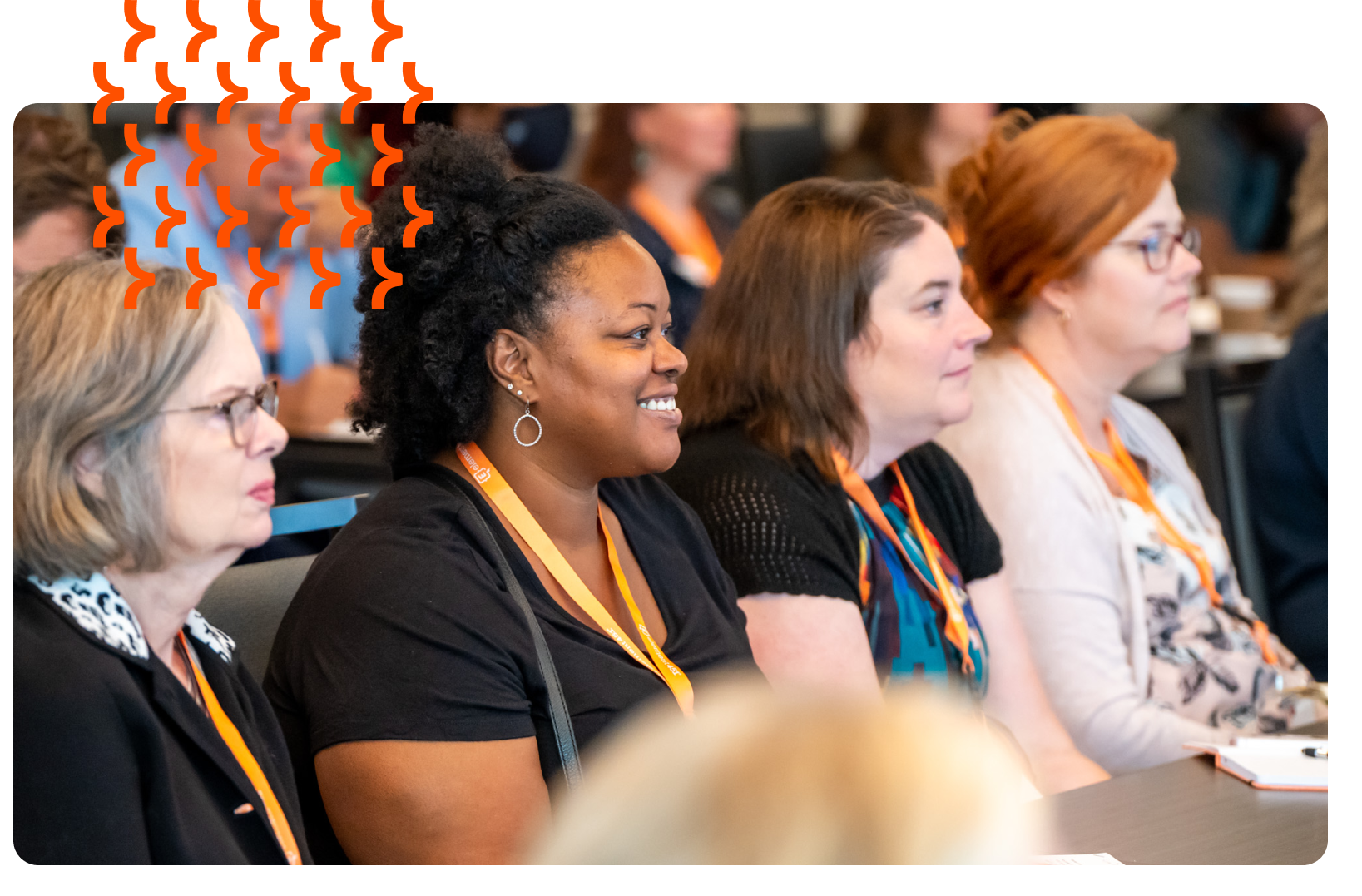
2023 Engage Summit
Explore the latest technologies, increase your skillset, and gain insights into today’s students, to deliver the most personalized digital engagement experience every step of the way. June 27-28 in Raleigh, NC.
Sign Up for Engage Summit
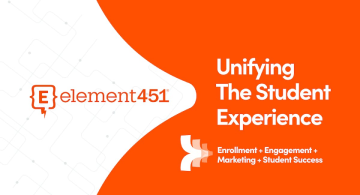
About Element451
Boost enrollment, improve engagement, and support students with an AI-driven CRM and agent platform built for higher ed. Element451 makes personalization scalable and success repeatable.
Categories
New Blog Posts
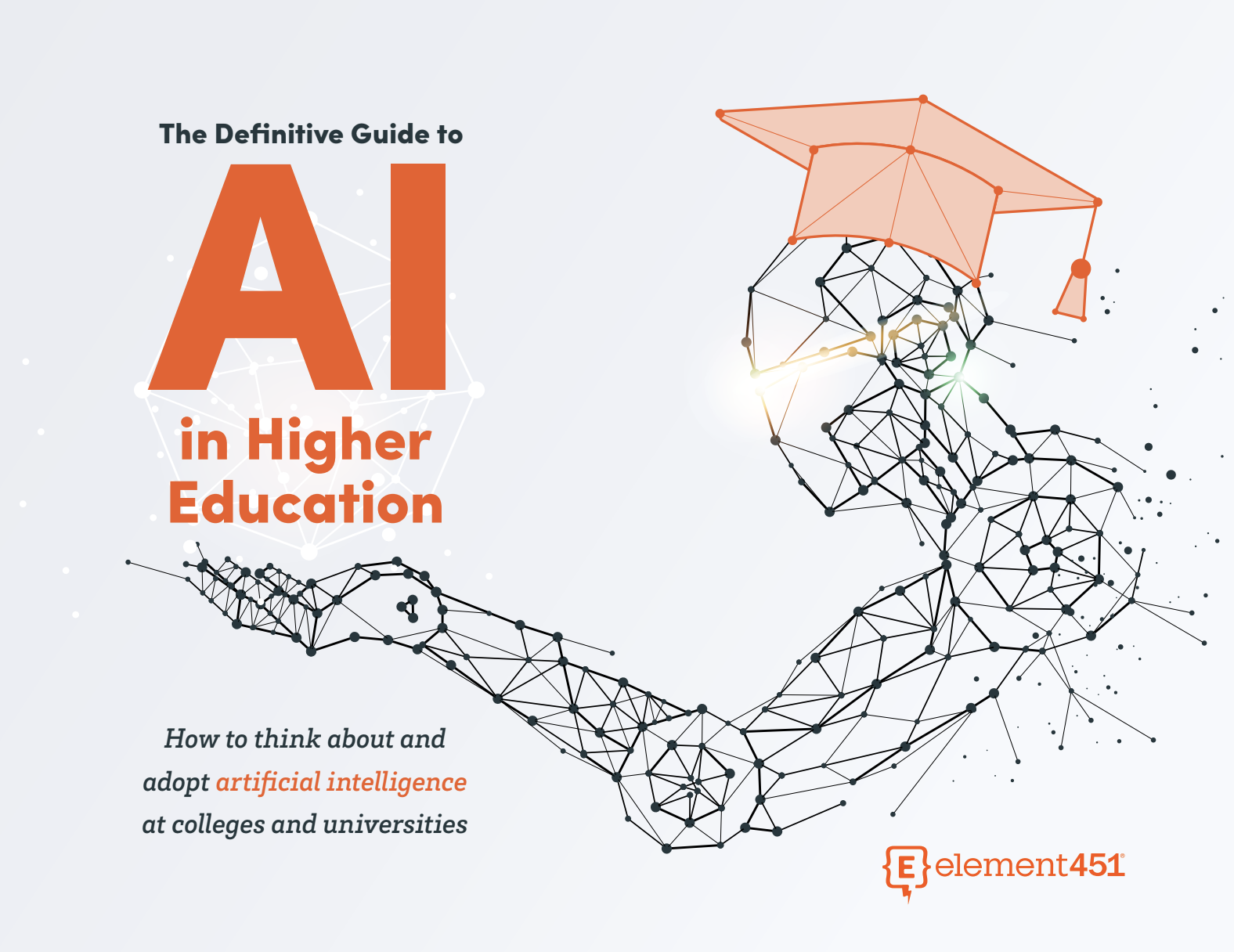
The Definitive Guide
AI in Higher Education
Bridge the gap between the latest tech advancements and your institution's success.
Useful Links
Related Articles

Talk With Us
Element451 is an AI-driven CRM and AI agent platform for higher education. Our friendly experts are here to help you explore how Element451 can improve outcomes for your school and students.
Get a Demo


